Robots perform tasks such as welding, painting, assembly, material handling, and quality inspection, enhancing precision and efficiency in car manufacturing.
Robots in the Car Industry Transforming Production Lines
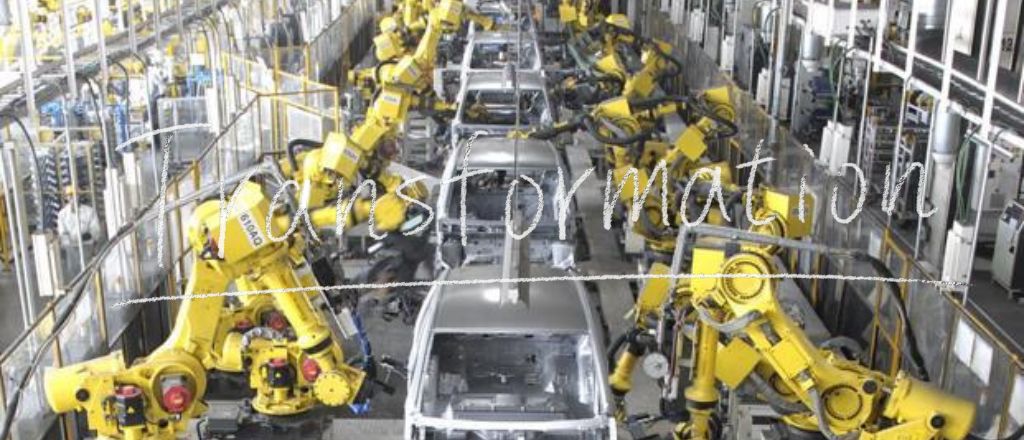
The car industry has experienced profound transformations thanks to integrating robotics into production processes. Industrial robots, once a science fiction concept, have become an essential component in car manufacturing. Robots have continuously enhanced precision, efficiency, and scalability in production lines, from the early adoption of robotic arms in the 1960s to today's highly advanced systems.
Initially, robots in the car industry performed simple, repetitive tasks like welding and painting. Over time, advancements in artificial intelligence (AI) and machine learning have enabled these machines to handle more complex operations, such as assembling intricate components and performing real-time quality checks. This evolution has accelerated production and drastically improved product quality, paving the way for a more competitive and innovative car manufacturing landscape.
Exploring Robotics in the Car Industry: Boosting Efficiency
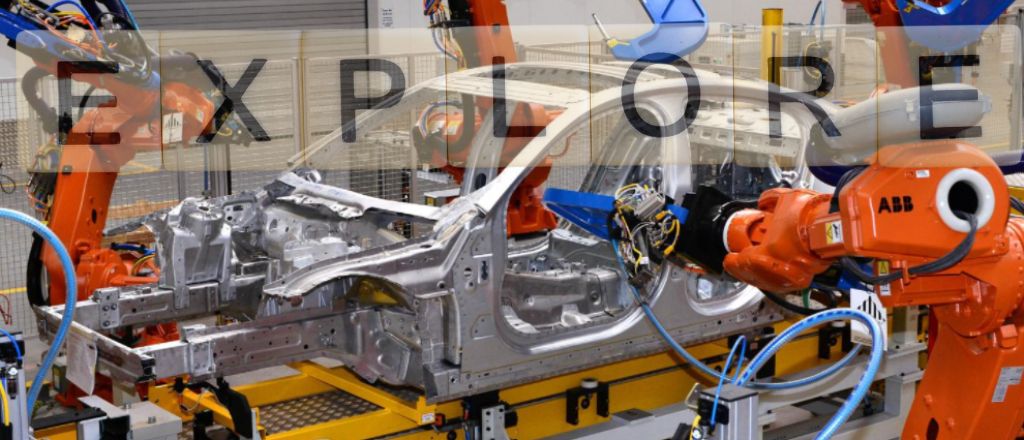
The incorporation of robotics in the car industry has led to groundbreaking innovations. Robots now work alongside human operators in collaborative environments, often called "cobots." These cobots handle tasks that are either too tedious or hazardous for humans, ensuring workplace safety and productivity.
Advanced robotics systems integrate cutting-edge technologies such as machine vision, which allows robots to identify and adapt to various components during assembly. Additionally, AI-powered predictive maintenance ensures that robots remain operational with minimal downtime. Automation has also enabled manufacturers to adopt flexible production models, allowing customized vehicle assembly without sacrificing efficiency.
Innovations like autonomous mobile robots (AMRs) are revolutionizing factory logistics by transporting materials seamlessly. These advancements highlight the industry's shift toward more intelligent, interconnected manufacturing processes, making car production faster and more adaptable than ever.
How Robots are Revolutionizing Car Manufacturing Processes
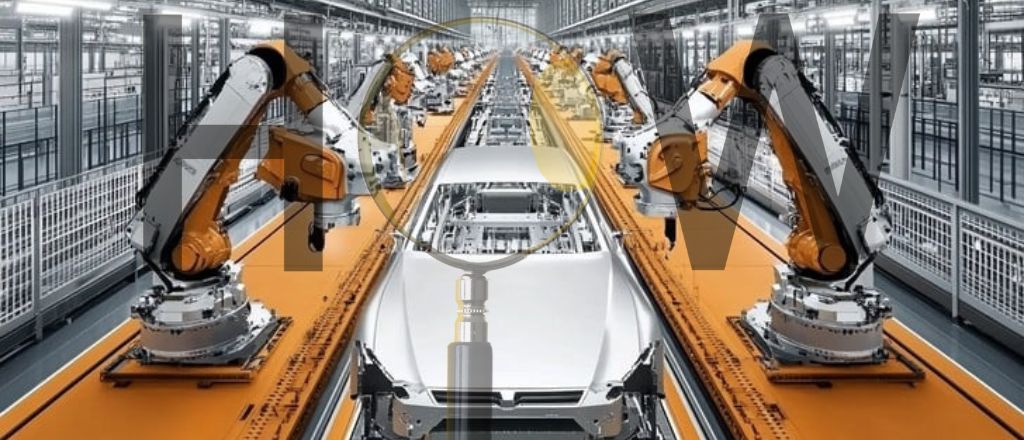
Robots have fundamentally changed how manufacturers build cars, making processes more streamlined and cost-effective. One key area of transformation is precision assembly. Robots equipped with sensors and AI algorithms can perform tasks with unparalleled accuracy, ensuring each component fits perfectly.
Another critical advancement is in welding. Robotic welders operate at speeds and precision levels unattainable by humans, ensuring solid and reliable bonds in vehicle frames. Similarly, automated painting systems deliver consistent finishes while minimizing waste and environmental impact.
Quality control has also seen a significant upgrade. Robots equipped with cameras and sensors inspect each vehicle component, detecting defects that may not be visible to the human eye. These systems ensure every vehicle meets stringent quality standards before leaving the factory, reinforcing customer trust and brand reputation.
The Role of Industrial Robots in the Car Manufacturing Industry
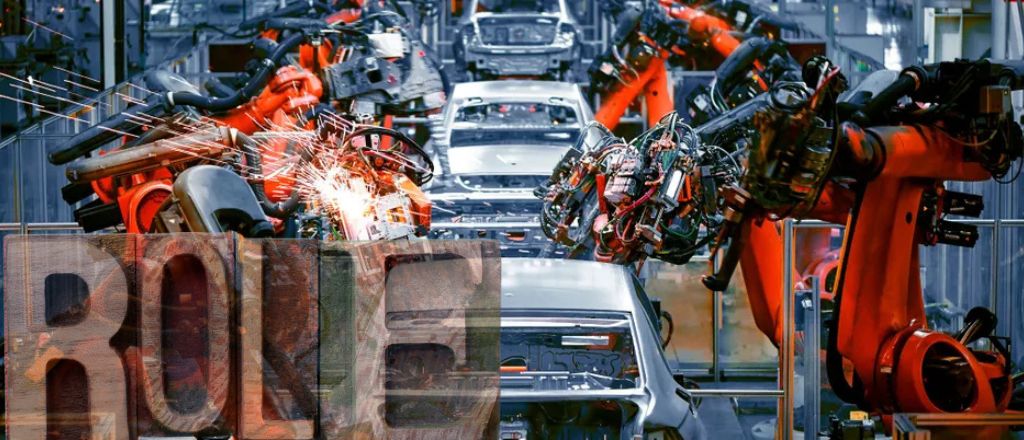
Industrial automation is the backbone of modern car manufacturing. Advanced systems enable manufacturers to meet high demand without compromising quality. By streamlining repetitive and labor-intensive tasks, these technologies allow human workers to focus on more complex and creative aspects of production.
Automation is instrumental in reducing production costs. These systems operate continuously without fatigue, increasing output and shortening lead times. Furthermore, advanced technologies minimize errors, reduce waste, and lower the need for costly rework.
In the face of global competition, the importance of industrial automation becomes even more pronounced. Its integration allows car manufacturers to produce vehicles at scale while maintaining strict safety and environmental standards. This adaptability positions manufacturers to succeed in a rapidly changing market.
How Robots Are Used in the Car Industry: A Look at Key Applications
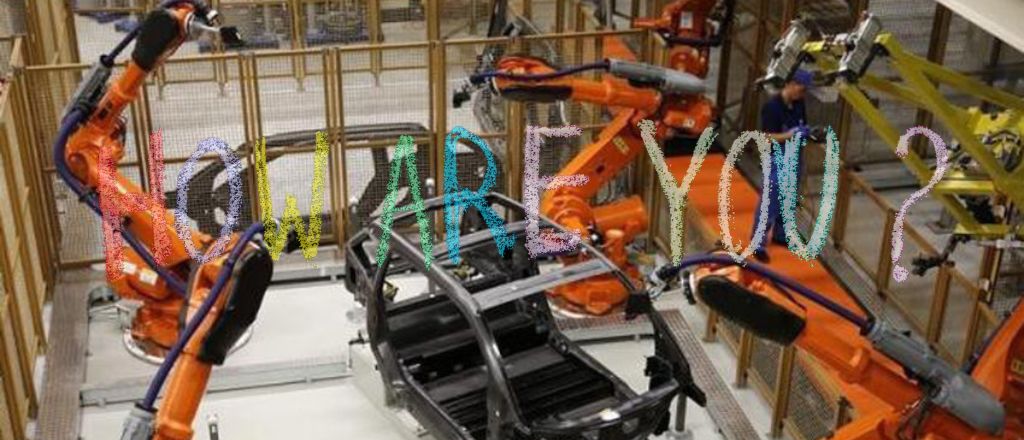
The applications of automation in the car industry are diverse, spanning tasks from assembly to logistics. Key applications include:
- Assembly Line Automation: Automated systems assemble components such as engines, transmissions, and suspensions with precision.
- Welding: Robotic welders ensure uniform, high-quality welds, enhancing vehicle safety and durability.
- Painting: Automated paint systems achieve flawless finishes while reducing paint wastage and environmental harm.
- Material Handling: Automated systems transport heavy materials across factories, reducing manual labor and enhancing efficiency.
- Quality Inspection: Advanced sensors and cameras enable precise and meticulous inspections, ensuring every part meets quality standards.
As the car industry embraces electrification and sustainability, automated machinery is used to manufacture electric vehicle (EV) components, such as batteries and charging systems. This adaptability underscores the pivotal role of automation in shaping the future of car manufacturing.
Let's Ask the expert Trevor
Major automakers like Ford, Tesla, BMW, and Toyota utilize robots extensively in their manufacturing processes.
As of 2024, the automotive sector is the largest adopter of industrial robots, accounting for 33% of all installations in the U.S.
Yes, robots are integral to car manufacturing, handling various tasks to improve production speed and quality.
Robots are extensively used in the automotive industry for tasks such as assembling parts, painting, welding, quality inspection, and autonomous material handling within factories. They ensure precision in repetitive tasks that demand high accuracy and consistency, like attaching panels or installing intricate components. Advanced units equipped with sensors and AI play a vital role in improving manufacturing efficiency by minimizing human error. Beyond production, these systems are integral to autonomous driving, assisting with navigation, obstacle detection, and ensuring driver and passenger safety.
Robots offer numerous advantages in car manufacturing, including increased efficiency, precision, and cost-effectiveness. They can work continuously without breaks, speeding up production and meeting high demand. These machines perform repetitive tasks with unmatched accuracy, reducing defects and improving the overall quality of vehicles. Their ability to handle hazardous materials and work in unsafe environments enhances worker safety. Additionally, they lower production costs by minimizing waste and energy consumption. Highly adaptable to changes, they enable manufacturers to quickly implement new designs or technologies. Overall, robots drive innovation and competitiveness in the automotive industry while improving productivity and consistency.
The future of robotics in the automotive industry is poised for transformation through advanced automation and artificial intelligence. Robots will continue to revolutionize manufacturing by improving efficiency, precision, and safety. Collaborative systems (cobots) will work alongside humans, optimizing tasks like welding, painting, and assembly. AI-powered solutions will enhance quality control by identifying defects in real-time. Autonomous mobile units will streamline logistics and supply chain operations. As electric and autonomous vehicles gain prominence, robotics will be critical for battery production and advanced sensor integration. Ultimately, robotics will drive sustainability and customization, enabling faster production and reduced environmental impact in automotive manufacturing.
The biggest problem with robots lies in their limitations in adaptability and decision-making. While they excel in repetitive, pre-programmed tasks, they struggle with creativity, emotional intelligence, or nuanced judgment. High initial costs and maintenance can also be barriers to adoption, especially for smaller businesses. Additionally, reliance on data makes them vulnerable to cybersecurity threats and errors in unpredictable environments. Ethical concerns arise regarding job displacement and the need for upskilling workers to coexist with automation. Overcoming these challenges requires advancements in AI, improved human-robot collaboration, and strategies to mitigate economic and social impacts of widespread automation.

